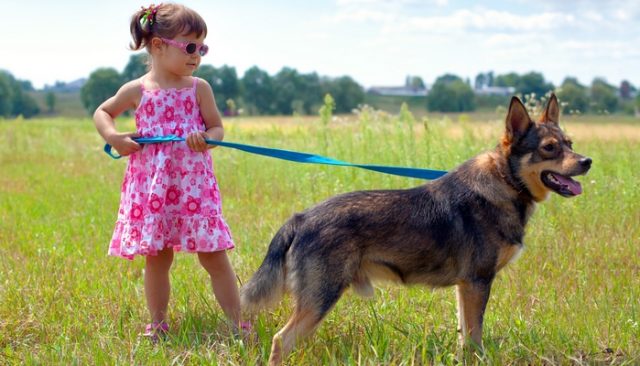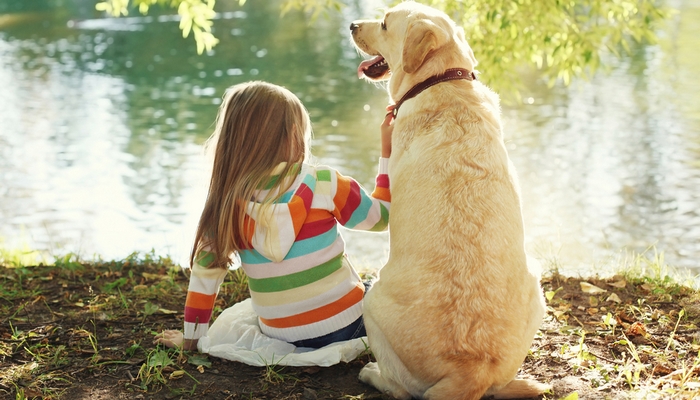
These pictures are good examples of kids playing safely with dogs, but don't just look at the pictures! If your child doesn't know how to act appropriately around a dog, it can lead to a very bad situation. Be sure to read these helpful tips to be sure your child and your pet are interacting in a healthy way that will make both of them happy.
If you have young children, you may be worried about getting a dog or letting your children play with dogs. There are some good things that you can teach your children that will help them understand the correct ways to interact with a canine.
First you want to make sure the children and dogs are supervised at all times, especially if they don’t know each other or your child is younger and doesn't understand how to keep his hands to himself. Until your child is older and has plenty of experience interacting with dogs, they should never be alone with a dog.
You need to be sure that you can trust your child and your dog 100% before ever leaving them alone together.
 RECOMMENDED READ: Do Your Kids Know How to Be Around Dogs?
RECOMMENDED READ: Do Your Kids Know How to Be Around Dogs?
Secondly, you never want your child to approach the dog while he is eating or chewing on a bone or toy. Dog’s can be territorial, and this can trigger them to think that the child is trying to steal their food.
When a child approaches a dog, teach them to use the back of their hand and not hover above the animal. A dog will feel threatened if they are cornered and often a child won’t be aware of this. Sometimes it’s best to teach the child to let the dog come to them.
When it comes to walking the family dog, many times a child is not yet strong enough to be able to restrain a dog, especially when the dog is bigger than they are. You can have your child help you hold the leash where you hold it and teach your child to use proper voice commands.
It’s good to have the child be involved in training the dog with positive reinforcement. Never teach them to hit a dog or be mean to him. This gives the dog and child a respectful relationship with healthy boundaries.
Sometimes the adult is the only one that the dog considers to be an authority figure. Allowing your children to help with training will teach the dog that he needs to listen to and respect all humans, not just the big ones.
Sometimes children don’t realize when a dog needs personal space, and they will want to hug every dog they see. Depending on the dog, this might make him uncomfortable. Teach your child that some dogs aren’t as friendly as others, and it’s important to ask the owner how friendly a dog is before approaching him.
RELATED: Ten Best Books for Dog Owners with Kids
Finally, you can teach your child to do things with your dog that will also help the child. He could read to your dog, which is a safe way for the two of them to hang out because the child will not be encroaching on the dog's space. Dogs can be very beneficial for children’s development.
Having a dog can teach your kids about compassion and a having a work ethic. It can help them learn to take care of others, and it can teach them about how to overcome certain behavior issues. Having your child involved in training your dog is a great way to prepare them to be patient and diligent.
Remember to teach your child the best ways to interact with dogs so that their chances of having a bad experience are lower. One bad memory could be enough to scare them away, so we must do our best to teach our kids how dogs react to certain behaviors in advance. Dogs can help calm children’s anxiety and it goes the other way as well. Dogs can truly benefit from the love and affection of their children friends.













